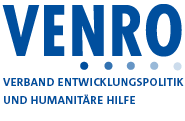In a recent poll the Development Engagement Lab (DEL) examined how German politicians think about development cooperation. David Hudson, Professor of Politics and Development at the University of Birmingham’s International Development Department and Co-Director of the DEL, explains the key findings of the survey.
David Hudson, how important is development policy to German politicians?
We found that decision-makers were really quite positive and supportive of development cooperation. For example, a whopping 74% say development cooperation is in Germany’s national interest and 70% think it strengthens Germany’s leadership and reputation in the world – these are high figures. And 62% of decision-makers want to increase the development cooperation budget.
However, when compared to other areas of government spending – such as social security, education, police, and health and so forth – ODA (Official Development Assistance) ranks on the bottom third of priorities. But this makes sense, and it would be strange if MPs were to rank it above such core domestic concerns.
Which development issues have priority for political decision-makers?
The top three priority areas for development cooperation are (1) education, (2) government and civil society, and (3) health. These are largely the same as mentioned by the public (we also survey the public in Germany about these issues), except for government and civil society; the public is much less convinced about this, even though we know that corruption and effective public spending are key concerns for the public. So maybe there is room for decision-makers to make the case for such priorities.
What motivates decision-makers to get involved in these issues?
A number of things. As suggested above, decisionmakers believe that development cooperation is strategically valuable for German foreign policy. But equally, we found that personal experience matters and engagement with NGOs. Over 60% of the decision-makers read NGO publications to hear and to understand about development cooperation, and 50% said that they have come to understand the issues through travel or personal experience. We also used an experiment to test why decisionmakers engage with a campaign. We found that the key ingredients are when campaigns focus on on fighting poverty, use social media, are led by NGOs, and have widespread public support (10K+).
Which global issues are currently moving the German public?
Climate change is the top global issue with 47% of the public saying that it is one of the issues they personally care about. This is followed by inequality (40%), global diseases and pandemics (36%). Migration was mentioned by 32% of the public. The data come from a recent June 2021 survey that we did with a nationally representative sample.
The survey was put to MPs, BMZ officials, and the MPs’ staffers. More Information you can find on developmentcompass.org. It is a space for connecting communicators, campaigners, fundraisers, academics, policy-makers and practitioners working on development cooperation.
| Interview |
Die Inhalte auf dem VENRO-Blog geben Meinungen und Einschätzungen unserer Autor_innen wieder. Sie können von abgestimmten VENRO-Positionen abweichen.
 Mitgliederbereich
Mitgliederbereich
